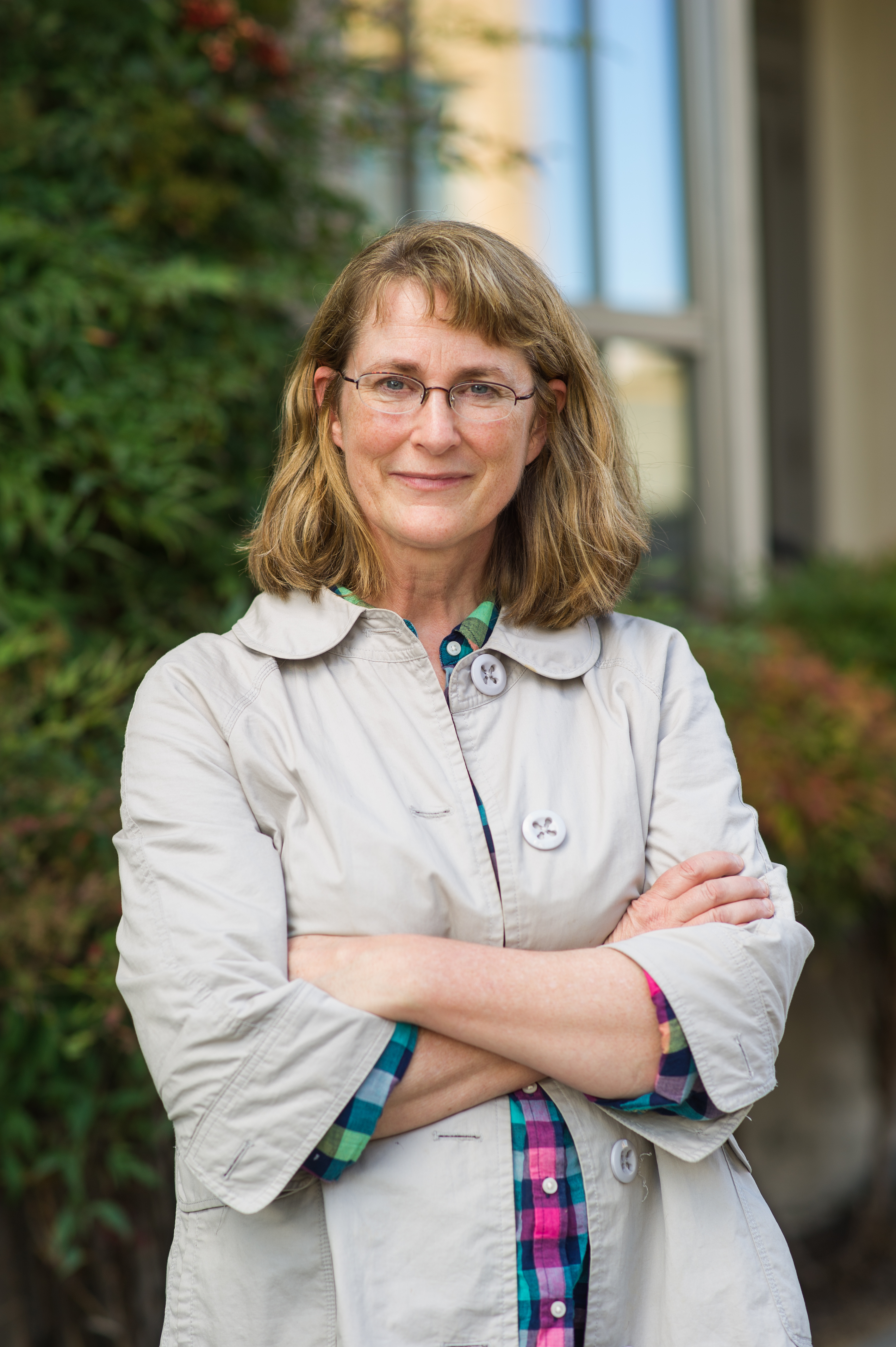Linda Hartzell, artistic director of Seattle Children’s Theatre, is both an anomaly and an exemplar in the local stage scene. Her company, founded in 1975, is thriving. She’s been on the job for 30 years and shows few signs of slowing. But the institutional success of SCT depends both on her management skills and her goofball rapport with its intended audience.
With her tendency to crack wise, Hartzell admits to a drifting attention span. “I’m silly and playful,” she says. “I lead with my heart and my body, and that’s where kids are. Adults are cynical, and I can be. But it’s hard for me. Maybe that’s why I’m good at my job.”
Indeed she is. Under her tenure, SCT has grown to become one of the 20 largest regional theaters in the country. It has produced over 100 world premieres, 35 of which she’s directed. Despite the wavering economy, SCT has thrived while sister companies like ACT have staggered and others, notably Empty Space Theatre and Intiman, have fallen or faltered. (It’s also a union shop.) And the nonprofit SCT hews to its mission by keeping ticket prices at a level where low-income kids and their parents can attend their shows.
Part of Hartzell’s talent is an instinctive insight into what kids want to see. Years ago, playwright Y York—whose Kipling adaptation, The Garden of Rikki Tikki Tavi, opens SCT’s 40th season next week—told me that Hartzell’s understanding of her audience is almost uncanny. “She was able to identify in rehearsal what bits would make the kids fidget,” York said, “and in previews I saw that she had called it, right down to the specific line.” (Rita Giomi directs the coming show.)
“It really bothers me,” says Hartzell of youth-theater artists who don’t trust their audience. “It’s about having a well-written story where you care about the characters. When a play’s redundant, or didactic, or meaningless, you lose them. My own attention span is that of a 9-year-old. I’m a reader; I read lots of essays and articles, but it’s hard for me to try with a novel. Emotionally, it takes a lot to keep me connected. If they’re losing me, they’re going to lose the kids.”
Back in the late ’70s, Hartzell explained during a recent sit-down, she was newly divorced with an infant son when she joined SCT. For three years she did shows at the theater’s rental venue in Woodland Park Zoo, while also in grown-up productions at Empty Space. As a director, her breakthrough success was emphatically for adults, not kids: She helmed Angry Housewives, A.M. Collins’ and Chad Henry’s legendary local musical, which opened at the Pioneer Square Theater in 1982 and ran for eight years.
This satiric take on punk at the dwindling end of first-wave feminism had an inauspicious beginning, she tells me. “They thought it was a disaster and didn’t want to open it. But I pleaded with the company to let us run the show for two weeks so we could pay the actors.” Instead the performers, the material, and the punk zeitgeist led to a smash hit, and Hartzell found herself in demand as a director. (The show later played New York and other markets.)
Assuming the leadership of SCT in ’84 was a considerably less punk-rock experience, she recalls. “When I started with the theater, we had a big deficit. I have never forgotten what it’s like to be worried about money; and so when other companies were ignoring them in the ’90s, we weren’t. Even as we moved into our new venue [in Seattle Center], one custom-built for us, we were keeping an eye on budgets. Despite our commitment to being a professional company, we’ve never been irresponsible, and that’s led to some tough choices.”
Those have included a series of staff and talent cuts throughout the last recession-impacted decade, and Hartzell worries that the audience decline isn’t over yet—it’s a nationwide phenomenon. “I thought we were done. But I don’t think we’re there yet. Since we have to keep ticket prices low, our answer is the same as Walmart’s: volume.” The result is 11 shows a week—a tough schedule for both performers and staff but one that Hartzell believes is a sustainable model.
But is it sustainable for Hartzell? A couple of years ago she took an unexpected extended leave, and there were rumors that she was considering stepping down. She admits that the break was a vital one. “I did what I needed to do: I wiped the blackboard clean. I spent time in my garden, read some books I wanted to read. I found some serenity and some peace, and then the ideas started to come again.”
With her return came renewed purpose, and she now sounds as enthusiastic as ever. “We laugh because we have to be strong,” she says. “Every day, there are kids around us. That 6- or 11- or 15-year-old deserves to find some hope in their lives, and they need to be challenged. So the only answer is to recommit yourself to the work.”
For now, Hartzell is adamant that she has no plans for stepping down. It just might be that she’s irreplaceable. Seattle Children’s Theatre 201 Thomas St. (Seattle Center), 441-3322, sct.org. $15–$36. Runs Sept. 25–Nov. 9.
stage@seattleweekly.com
Read more features from Seattle Weekly’s 2014 Fall Arts Guide, as well as a complete calendar of this season’s events, here.








